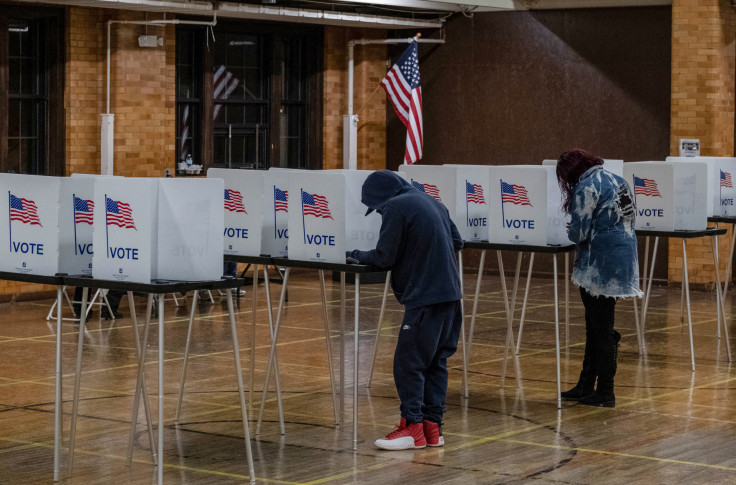
As Election Day approaches, election officials in Maricopa County, Arizona, are facing intensified threats and violence amidst a swirl of voter fraud misinformation. This comes in the wake of former President Donald Trump's claims about the 2020 election results, which led to a heated political climate in the county. Trump lost Maricopa County to Joe Biden by 45,109 votes, and since then, unfounded allegations of widespread election fraud have continued to surface.
Stephen Richer, elected as Maricopa County recorder in 2020, oversees the voter registration process and the handling of mail-in ballots. Since taking office in 2021, Richer has maintained that no widespread fraud occurred during the 2020 election, calling it "the most scrutinized election in human history." Despite his reassurances, allegations have persisted.
Reflecting on the public's skepticism, Richer noted, according to the CBS News, "They just need answers. It's just people are uncertain. They expected Donald Trump to win. I expected Donald Trump to win in Maricopa County. He didn't win." Richer believed that by providing factual answers, the doubts would dissipate. However, after numerous investigations, including a Republican-led hand recount of 2.1 million ballots that reaffirmed Biden's victory, many continued to reject the findings.
In May 2021, Trump claimed that "the entire database of Maricopa County in Arizona has been deleted," labeling it an "unbelievable election crime." Richer, disheartened by such claims, expressed, "The ludicrous nature of it, it just is offensive." He urged an end to the misinformation, stating, "This is as disprovable as saying two plus two equals five."
Richer has faced violent threats for defending the integrity of the election. After a meeting in 2021, he was heckled and followed to his car, with three violent threats leading to prosecutions. One individual, Frederick Francis Goltz, pleaded guilty to interstate threatening communications and received a sentence of three and a half years in prison.
Clint Hickman, former chairman of the Maricopa County Board of Supervisors, also faced backlash after certifying the election results. A loyal Trump supporter, Hickman voted with the Republican majority to certify the election after finding no evidence of fraud. Since then, he has received numerous death threats, including a chilling voicemail threatening harm to his family.
In a notable case, Mark A. Rissi was sentenced to two and a half years in prison for sending Hickman threatening messages, including threats of violence against his children. Hickman commented, "I've lost count," regarding the threats he has received.
Amid ongoing allegations, Shelby Busch, vice-chair of the Maricopa County Republican Party, has initiated a political action committee to investigate alleged fraud. She believes officials have failed to uphold their responsibilities to voters. Busch maintains that state regulations were violated, although a judge dismissed her as an unqualified expert witness in a recent case.
When asked by "60 Minutes" about the dangers of undermining public trust in the electoral system, Busch asserted her belief in the validity of her claims and emphasized that it's up to citizens to assess the evidence.
Busch has faced scrutiny for her rhetoric, previously stating she would "lynch" Richer, which she later clarified was intended as a "political lynching" metaphor. She expressed her commitment to exposing what she perceives as misconduct.
As Maricopa County braces for the upcoming election, Richer, who lost his reelection bid in July, voiced concerns about the potential for violence and unrest stemming from ongoing fraud allegations. "There are a lot of politicians for whom it's like oxygen," he remarked, reflecting on the morally ambiguous nature of contemporary politics.
This narrative is not unique to Arizona; nationwide, false claims of election fraud continue to provoke controversy. A report titled "Lost, Not Stolen," authored by prominent conservatives including attorney Ben Ginsberg, underscores that the evidence supporting allegations of widespread fraud simply does not exist. Ginsberg emphasized that courts have dismissed the vast majority of lawsuits brought by Trump and his allies, affirming the principle that rulings must be accepted under the rule of law.
© 2025 Latin Times. All rights reserved. Do not reproduce without permission.


